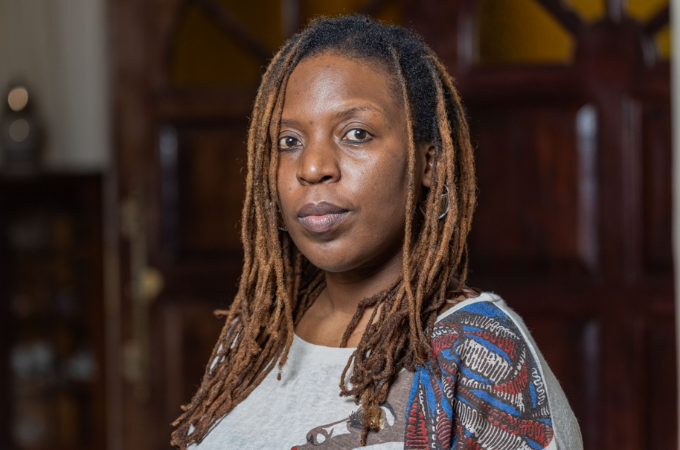
Siphiwe Ndlovu was recently interviewed for World Literature Today by Andrew Tepper who co-chairs the International Committee of the Brooklyn Book Festival.
In the interview, she shared a lot of insights into what it means to be a Zimbabwean writer in this particular moment. She expressed optimism about Zimbabwean writing and commented on the growing community of diaspora and continent-based writers documenting the nation’s experience from multiple fronts and through a diverse range of cultural idioms.
We all know that African writers continue to face challenges in the global publishing industry, but it is also important to celebrate wins and note key shifts in trends. Marking milestones is even more important when women are at the forefront of these developments.
Ndlovu’s recent publication is a novel titled The Quality of Mercy, the third book in the City of Kings trilogy. It was published late last year in South Africa. A US edition is set for September 5. You can preorder here.
Enjoy these highlights from the interview. Go here to read the entire conversation.
Zimbabwean Literature is Thriving:
I have said it before and I will say it again: this is definitely a great time to be a Zimbabwean writer. There are just so many writers out there telling the story of a country that is often maligned or, worse still, written off as a “failed state.”
Writing The Failures of the State:
In Zimbabwe’s fiction, there is anger, outrage, disappointment, disillusionment, hope (and the loss of it), but most importantly, there is a call for reckoning and change that the politics of the country have failed to successfully address.
The Impact of the Zimbabwean Diaspora:
There is, however, a silver lining to this gray cloud. Post-2000 Zimbabwe has seen the creation of what has come to be known as the Zimbabwean diaspora, as more and more Zimbabweans leave the country and settle in other parts of the world. This diaspora has allowed Zimbabwean writers—NoViolet Bulawayo, Novuyo Tshuma, Sue Nyathi, Petina Gappah, Tendai Huchu, Brian Chikwava, et al.—to seek publication in other countries, which has led to the exponential growth of Zimbabwean literature over the past twenty years.
Living and Writing Bulawayo:
Given the state’s control over the narrative of post-2000 Zimbabwe, it is important, as a writer, to live in and witness this period of great change. One of the wonderful benefits of living in Bulawayo at this time is that there are many other writers living in and writing about the city and the country—John Eppel, Bryony Rheam, Violette Kee-Tui, Erica Gwetai, Scottie Elliot, Susan Hubert, Leroy Ndlovu, and Philani Nyoni. This means that the story of what is happening is being captured from many different vantage points and being written in its multifaceted complexity.









COMMENTS -
Reader Interactions